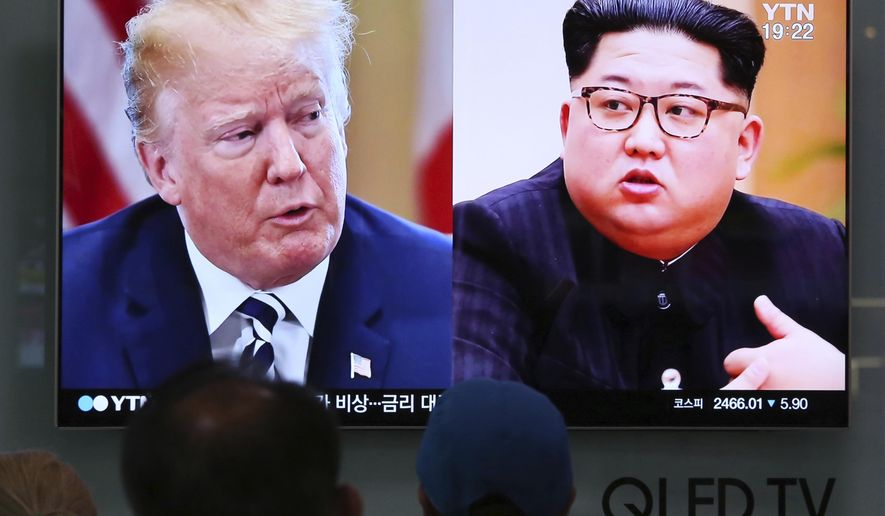
WASHINGTON (AP) - Even if conciliatory rhetoric revives U.S.-North Korea[1] summit plans, President Donald Trump[2] and Kim Jong Un are still left with the gaping disconnect over what a deal on North Korea[3]’s nukes would look like.
Observers of the soap opera-style Trump[4]-Kim[5] summit drama that has played out this week could be forgiven for thinking that a fragile courtship is underway, where the tenor of each side’s statements will determine whether the two can agree to sit down together.
But lying at the root of the North’s recent barrage of negative rhetoric that prompted Trump[6] to cancel the summit is a fundamental difference of views on the path to denuclearization. Reconciling those views may determine not just the success of any future meeting but whether a summit is in fact feasible.
“You could look at this as trash talking in anticipation of the big game,” said Christopher Hill[7], the lead U.S. negotiator with North Korea[8] under the George W. Bush administration. “Frankly speaking, I think it’s more serious.”
Trump[9]’s letter to Kim[10] on Thursday blamed “tremendous anger and open hostility” by Pyongyang for derailing the June 12 meeting in Singapore. Trump[11] changed his tune after North Korean Vice Foreign Minister Kim Kye Gwan responded not with more threats but qualified praise of the president and openness for talks. Trump[12] said Friday that the two sides were talking about putting the summit back on track, possibly on the originally planned date.
So unfolded a tempestuous 24 hours that left close U.S. ally and summit-matchmaker South Korea “perplexed”; North Korea[13]’s traditional ally China indignant that Trump[14] was blaming it for changing Kim[15]’s hardening attitude; and officials in Trump[16]’s own administration struggling to stay up to speed with developments.
But amid the whirlwind of speculation over whether Trump[17] and Kim[18] would have their date with history or not, North Korea[19]’s fundamental position had not changed, even if its tone had. Kim Kye Gwan explained that the North’s branding of Vice President Mike Pence as a “political dummy” and its warning of a potential nuclear showdown were a reaction to “unbridled remarks” by the U.S. side pressing it to unilaterally scrap its atomic program.
For North Korea[20] watchers, it was a diplomatic blow-up that had been waiting to happen ever since Trump[21] impulsively agreed in March to meet with Kim[22] to persuade him to abandon weapons that pose a growing threat to the continental U.S.
“The massive gap between the United States and North Korea[23] on denuclearization is the unspoken subtext to everything that’s just...

